World Breastfeeding Week: In Haiti and Gaza, mothers and children in the crosshairs of malnutrition emergencies
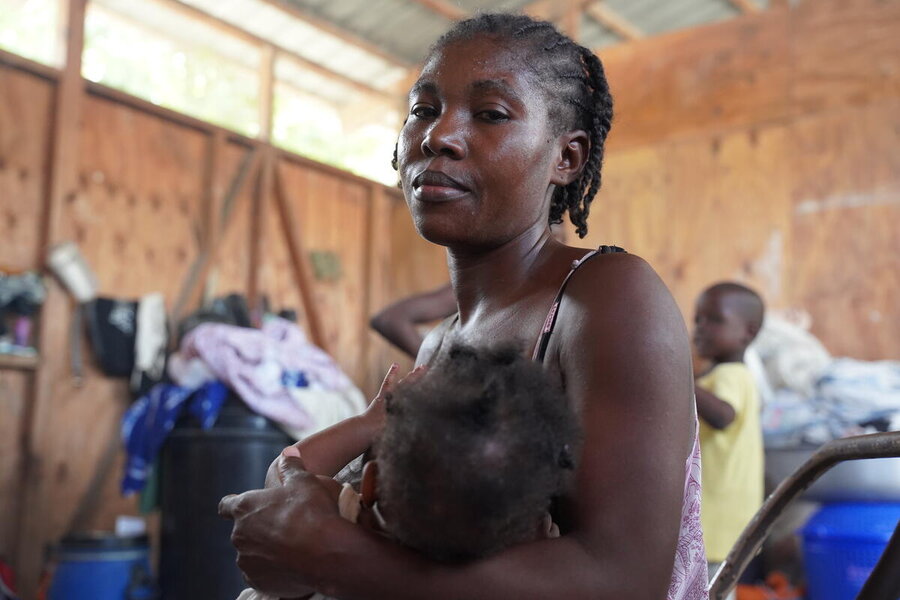
In Gaza, Ikhlas recounts pulling her daughter from the rubble of another bombardment, as she was pregnant with her fourth child.
“We escaped death,” she says, speaking from the southern city of Rafah. “We live on whatever aid is distributed.”
In Haiti’s capital Port-au-Prince, Paulema Rodeline cradles seven-month-old Kermissa in her arms, as she recounts how gang violence turned her life - and that of her elder pregnant daughter – upside down.
“When the shooting began, we hid under the bed,” recalls the 36-year-old mother of four, recounting how armed men burst into her neighborhood a year ago. “When it died down a bit, we ran to a church. But then the shots became more intense again.”
Worldwide, conflicts and other emergencies are shaping hunger catastrophes that pose devastating threats to pregnant and breastfeeding women and their young offspring - who count among the groups most vulnerable to malnutrition. During emergencies, too, women and their children are often on the move or living in unsanitary and crowded situations, where access to clean water and hygienic conditions are spotty at best.
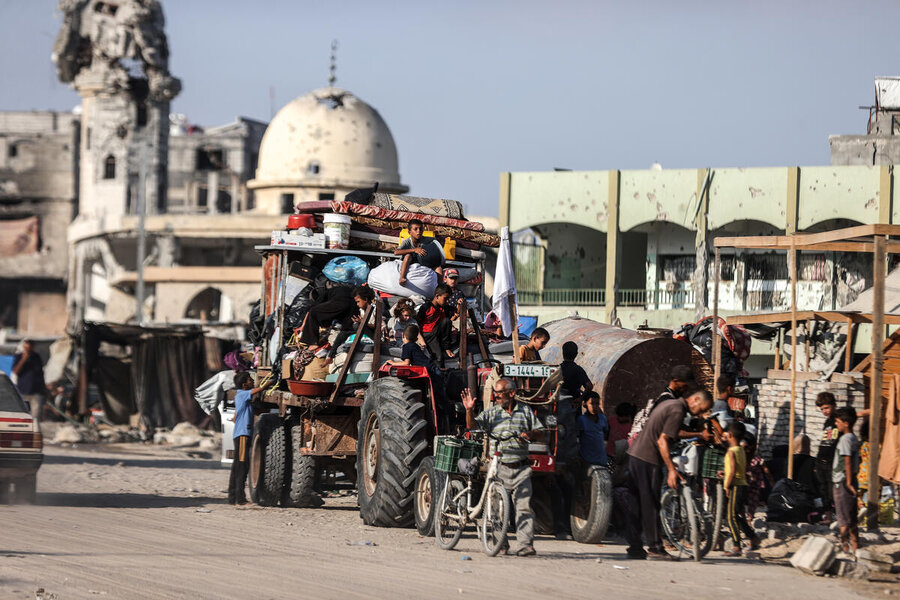
The consequences can be catastrophic: for children, ensuring a sufficiently calorie- and nutrition-rich diet during their first 1,000 days of life – from pregnancy to two years of age – is crucial to their immediate survival, physical and cognitive development, and lifelong wellbeing. Mothers also need healthy diets so they have the reserves needed for pregnancy and breastfeeding.
Both requirements underscore the importance of preventing malnutrition in the first place – central to the World Food Programme’s (WFP) nutrition programming. Last year alone, we reached over 28 million pregnant and breastfeeding women and young children with nutrition services such as specialized foods and nutrition counselling. The vast majority of those we reached – more than 23 million – were during emergencies.
But examples in Gaza, Haiti and elsewhere also illustrate how key roadblocks, from insufficient funding to lack of access to populations in need, prevent WFP and other humanitarians from reaching the most vulnerable mothers and children - often with disastrous consequences.
Crying out in hunger
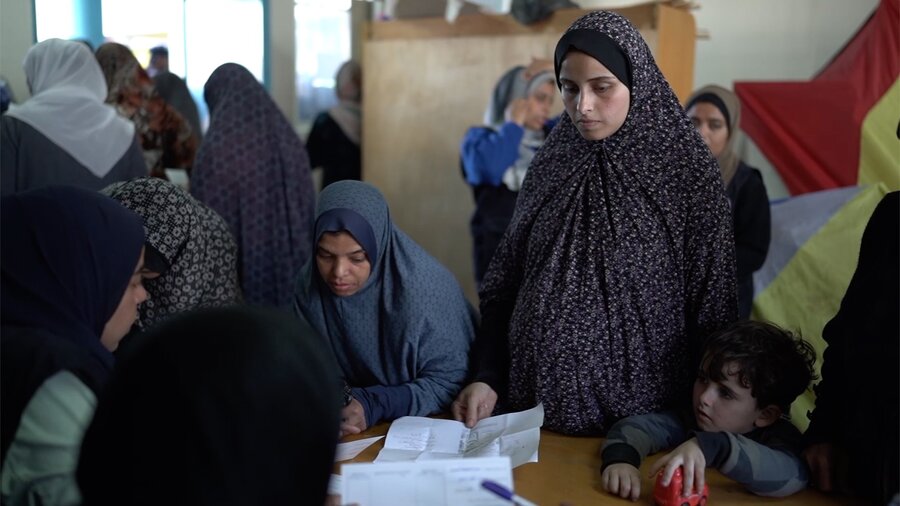
In Gaza – where nearly the entire population faces crisis or worse food insecurity – WFP aims to reach nearly half-a-million pregnant and breastfeeding women and young children this year with a specialized calorie- and nutrition-rich paste.
We work with partners to strengthen local capacity to screen for malnutrition in these vulnerable groups, and to increase counselling and awareness raising among soon-to-be and current mothers about the importance of healthy diets.
“My daughter used to cry all night,” says another mother, Muna, of her infant daughter whom she breastfeeds. That changed with WFP’s specialized paste. “She sleeps better,” Muna adds, “it keeps her full.”
But like much humanitarian aid, getting the power-packed food into Gaza remains challenging. Fighting, damaged roads and other impediments have forced us to reduce our rations. We cannot reach all those who need our support.
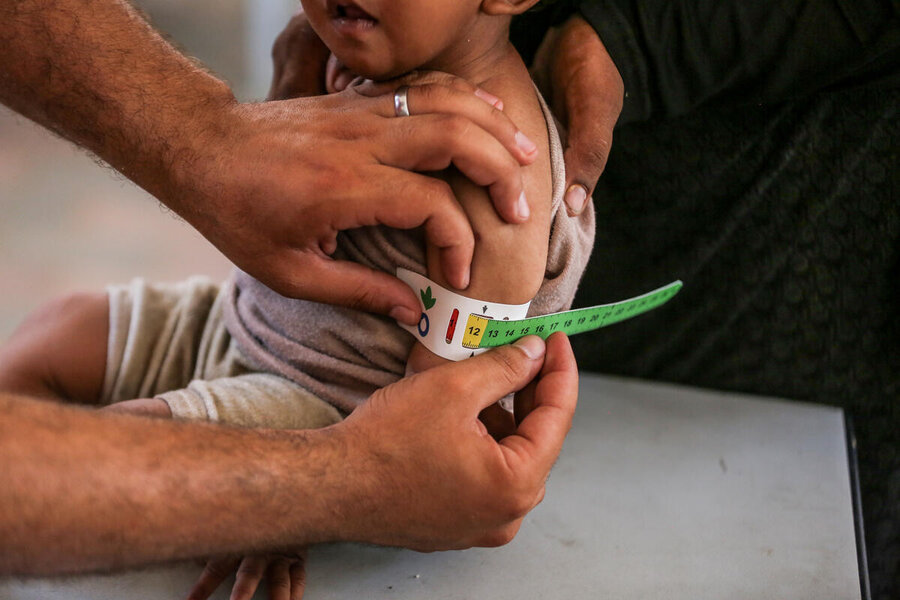
“There is no breakfast, lunch or dinner,” says Ikhlas, the Rafah mother, recounting how her children cry out in hunger. “I give them whatever I have to keep them quiet.”
Ikhlas spoke to WFP when she was nine-months pregnant. “I don’t think of myself or my baby inside me at the moment,” she adds. “I need to sustain my three kids.”
“Breastfeeding is not just a nourishing choice; it is a fundamental right and a vital lifeline for mothers and infants,” says Nihal Nassereddin, nutrition officer for WFP’s Palestine Country Office. “But we need the funds and access to succeed - and support all women in Gaza in giving their children the best possible start.”
A meal a day
In Haiti, gang violence that has engulfed much of the capital Port-au-Prince forced Rodeline and her children to join the ranks of nearly 600,000 displaced people, more than half of whom have been uprooted since early last year.
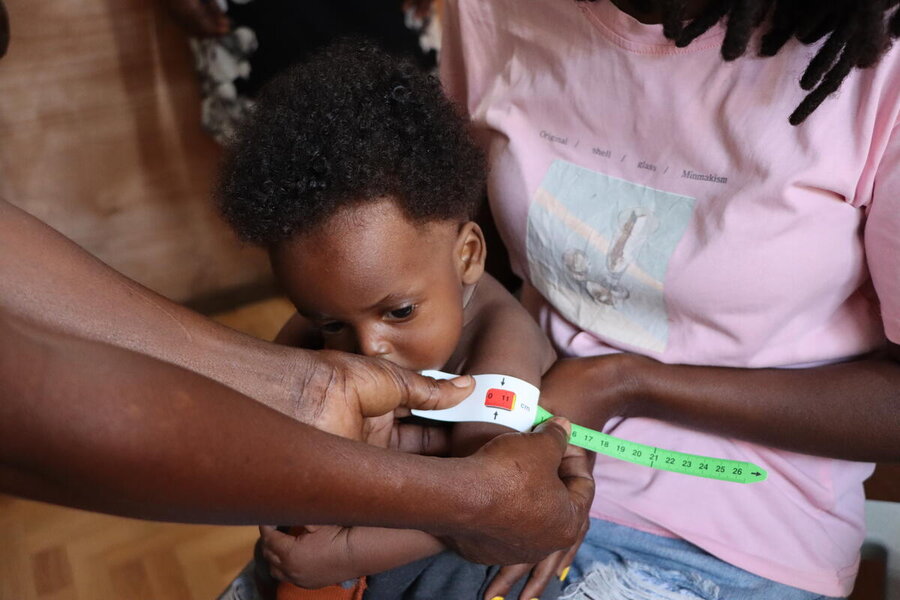
The country’s crisis has wreaked widespread devastation. Today, nearly five million Haitians – about half the population – face acute hunger, according to the latest expert assessment. More than a quarter-of-a-million children under 5 are expected to face acute malnutrition this year. Nearly one-quarter are already affected by stunted growth for lack of adequate diets.
WFP aims to help turn those numbers around, with plans to reach 2.4 million people with assistance across Haiti in 2024, including pregnant and breastfeeding women and their children.
At Lycée Jean-Marie Vincent in the capital, where she and her family eventually found shelter, Rodeline receives WFP monthly cash payments of US$151, which includes US$31 we distribute to soon-to-be or nursing mothers, or those with children under 5. These women also get nutrition counselling and advice, including on the importance of breastfeeding.
At eight camps across the capital, WFP partners with Doctors of the World (Médecins du Monde) to provide mobile clinics where children are screened and given special supplementary food to prevent malnutrition. Those who need treatment are referred to our partner agency, the United Nations Children's Fund (UNICEF). And we deliver hot meals to those recently displaced at dozens of sites around the city, including dishes specially adapted to small children’s nutritional needs.
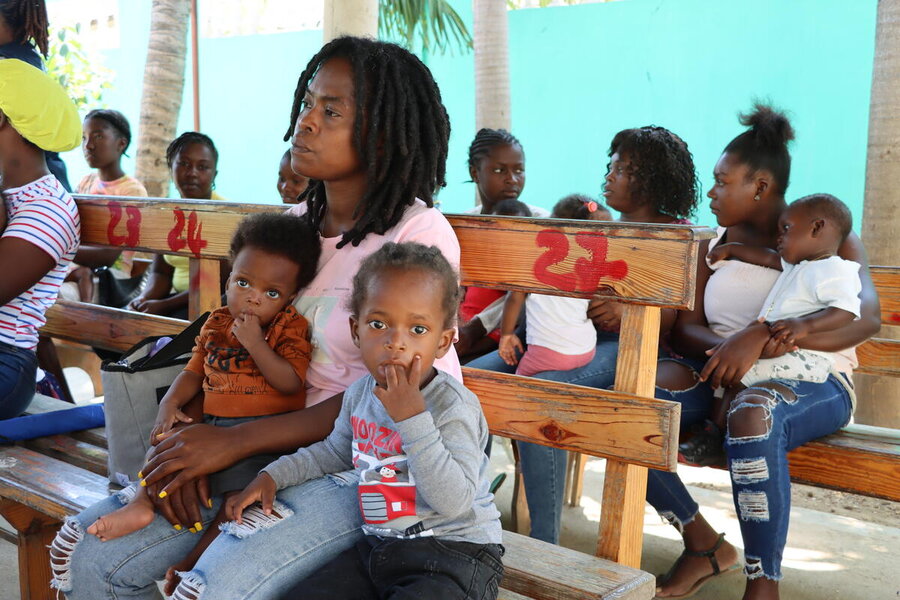
The one-time school where Rodeline’s family found shelter now houses more than 2,000 fellow displaced. Roughly 70 people cram into each classroom, packed with mattresses and cooking utensils, instead of desks and blackboards. Freshly washed laundry hangs on cords strung across rooms. Mothers use the laundry basins to bathe their children.
Finding work is near impossible. Finding food can be a daily struggle – WFP and other assistance is the family's only means to survive.
“We eat one meal a day,” says Rodeline. “Sometimes maize, sometimes spaghetti, whatever I manage to find.”
She and her older daughter are now new mothers. Rodeline breastfeeds baby Kermissa, and sometimes tries to also breastfeed her daughter’s eight-month-old. The exceptionally tiny teen mother cannot produce enough milk for her child. To boost her milk supply, Rodeline supplements her diet with fruit or millet porridge when she can.
Even as she dreams of better times, the responsibility of caring for four older children and two babies weighs heavily. “I have trouble sleeping at night,” Rodeline says.



